Welcome to the Learning Generation Initiative.
The Learning Generation Initiative is dedicated to transforming education systems, ensuring all children have access to quality learning within a generation.
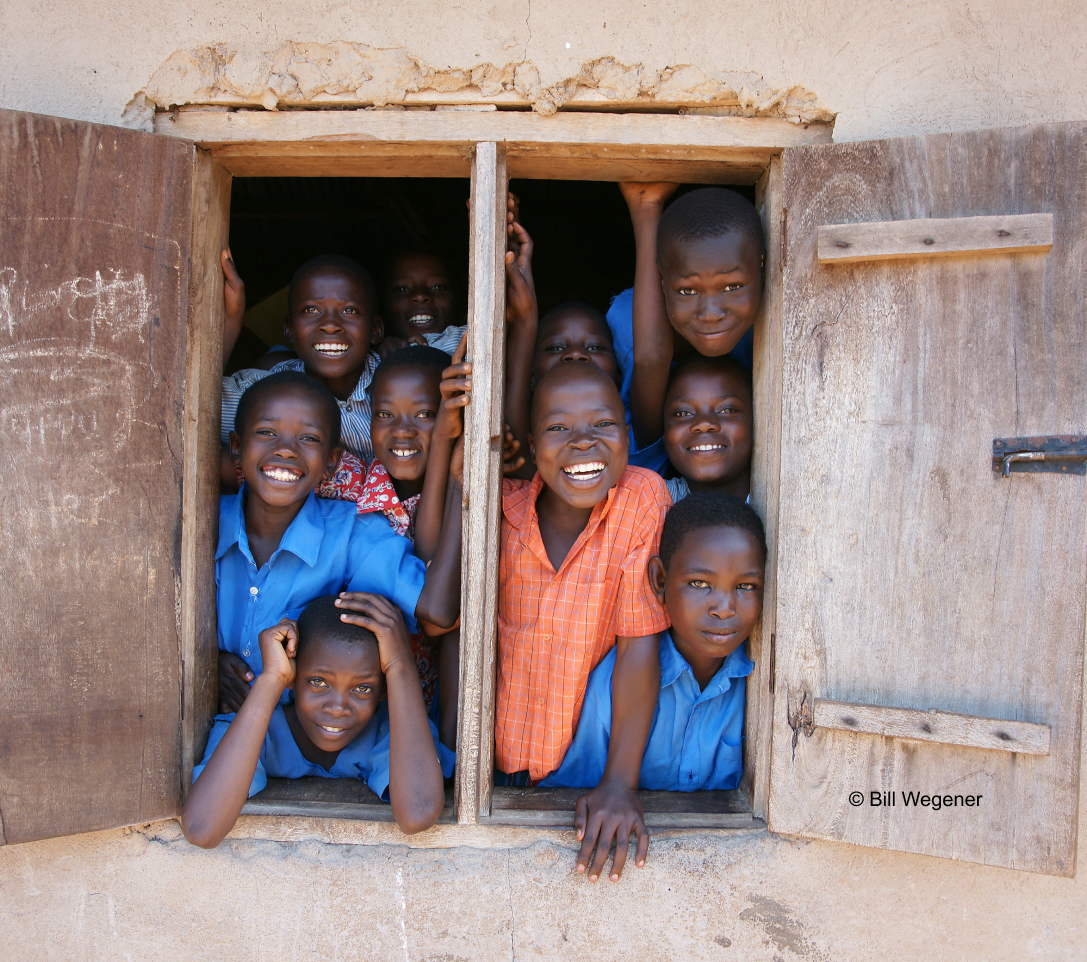
Discover THE Learning Generation Initiative
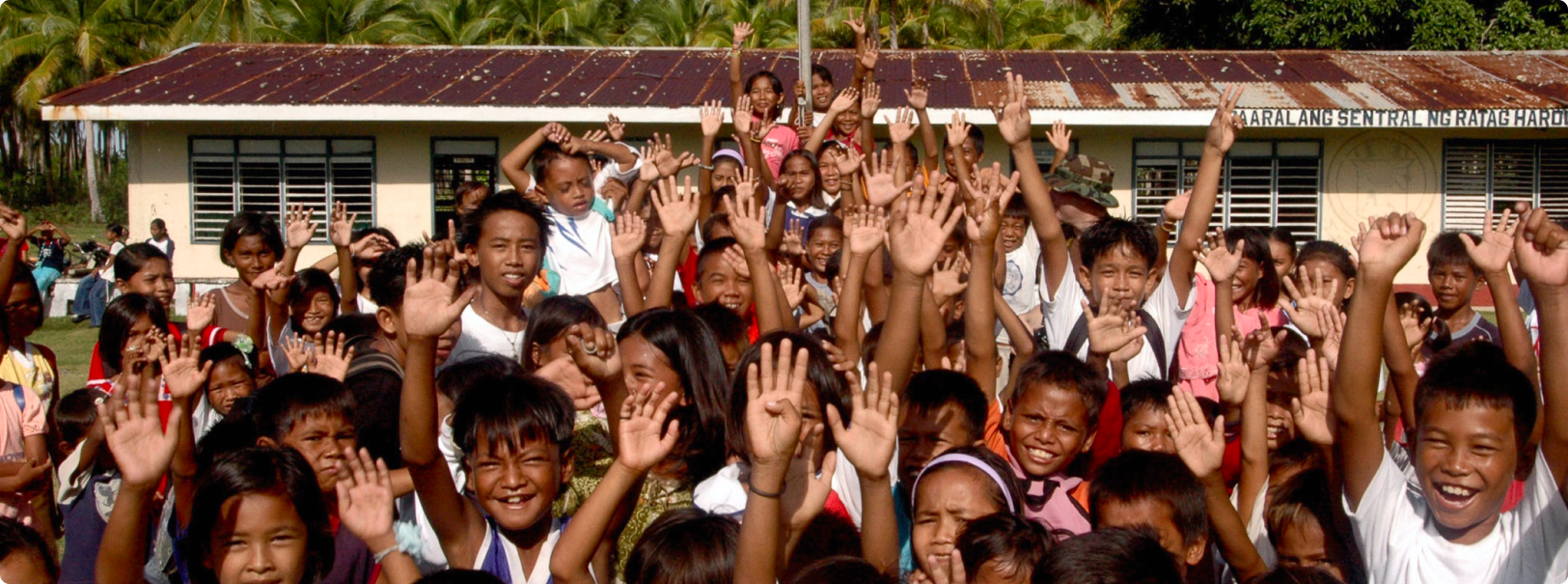
© Ryan Clement
defining our purpose
Our Vision
All children and youth are in school and learning the skills they need to be successful in work and life
Our Mission
To empower the people within and connected to education systems to enable all children to be learning within a generation
To achieve our vision and mission, we implement a threefold interactive and iterative approach to change:
Conduct pragmatic and independent research and analysis to understand barriers to progress and what works, translate it for policymakers, and create tools and knowledge products.
Working alongside governments and national partners, we hold policy dialogues, co-design, test, and evaluate innovative solutions, develop action plans and link them to opportunities for implementation and scale.
With the support of champions, we raise the profile of key issues and evidence-based solutions, engage in global fora and collaborate and convene to drive collective action.
fACT
Over half (68%) of the world’s youth are not on track to learn basic secondary level skills by 2030.
transformations
To achieve our ambitious agenda, we work across three transformations; Education Workforce, System Delivery and School Health and Nutrition. These transformations are underpinned by a strong focus on addressing marginalization, building systems resistance and facilitating cross sectoral collaboration.
Research & resources
Explore our portfolio of work to date. See below for a small sample of flagship reports or click to be taken to the full list of resources.
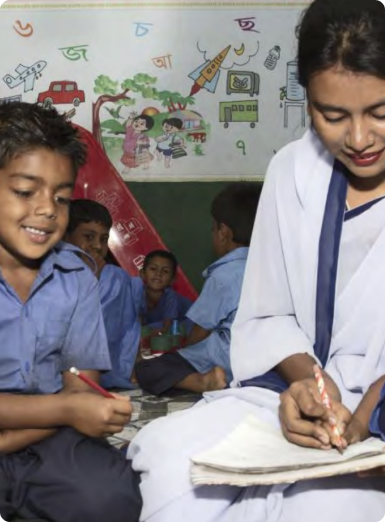
This report builds on the DeliverEd research in Ghana, Pakistan, Jordan, Sierra Leone, and Tanzania that sheds light on the effectiveness of delivery approaches for improving policy implementation. It proposes a framework for policymakers to consider when determining whether and how to launch, learn from, and scale and sustain delivery approaches.

This report outlines the need to work together with new and unlikely allies, other than education actors alone, to reimagine how our interconnected systems—health, education, economic development, and the protection of our planet—can work toward Sustainable Development Goal 4: Quality Education and beyond.
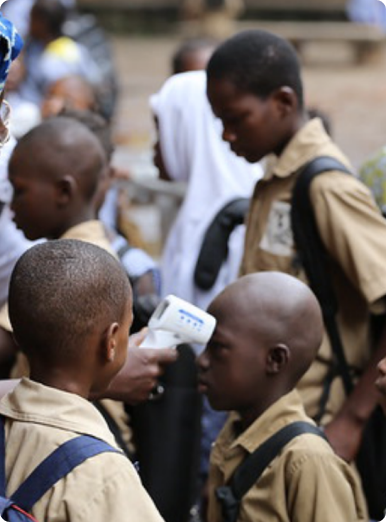
Save Our Future, a global coalition, rallied diverse voices amid the COVID-19 pandemic and developed this white paper that created a common narrative around the impact of COVID-19 on education and key actions needed to protect education.
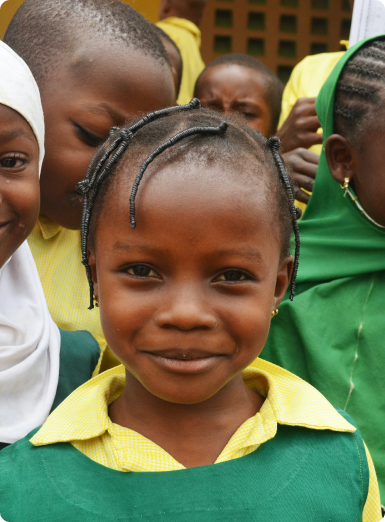
Transforming the Education Workforce lays out three evidence-based visions for strengthening the education workforce, creating more collaborative learning teams, and transforming education systems into learning systems.
Our Champions
A unique part of LGI’s offering is our network of champions who support and further our cause through advocacy, leadership partnerships, and action. By engaging with these experts, LGI aims to ensure that our agenda is continually evolving, holding ourselves accountable to our peers, generating political momentum at multiple levels, and influencing action by international organizations. We are delighted to work with this esteemed group.
© Rob Lach

OUR team
Meet The Team
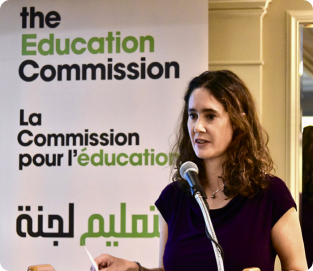
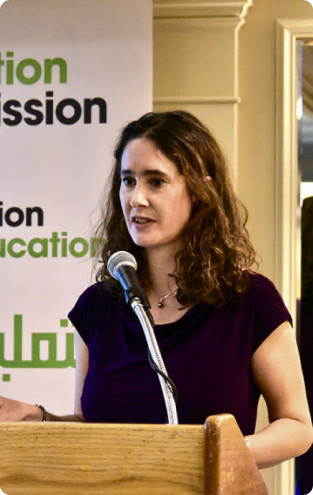
Director
(UK)
Amy is Director of Programs for the Learning Generation Initiative (LGI) and led the team’s transition from the Education Commission to LGI. She now leads the LGI team and the development and implementation of LGI’s strategy. Amy established the Education Workforce and High Touch High Tech Initiatives and now oversees the Education Workforce, System Delivery and School Health and Nutrition transformations. In this role, she oversees research and flagship reports, works directly with country governments and national partners, and forms strategic partnerships and collaborations that aim to improve learning for all.
Amy has over 15 years of experience in international education and was previously a consultant for UK FCDO and Results for Development, Head of International Education at Ark, and Deputy Chief Executive of Future Leaders, a UK-focused school leadership organization.
Amy’s previous career was as a management consultant for Deloitte, IBM, and PwC where she led global change management programmes. She has a BA Hons degree in Geography with European Study from Exeter University and is based in Bristol, UK.
Contact Amy: abellinger@edc.org
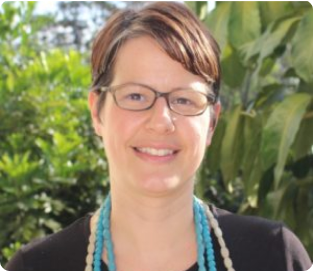
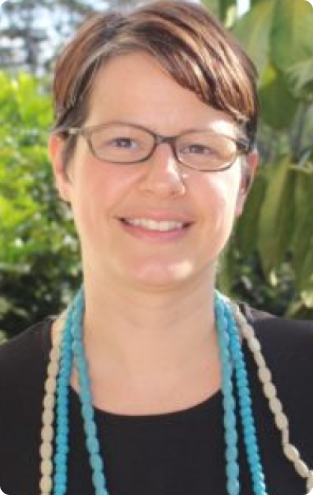
Education Workforce and System Delivery Lead
(Kenya)
Deborah Kimathi is Project Director for the Education Workforce Initiative (EWI), and is tasked with oversight of programs, research, country work and strategic communications, as well as the establishment and management of partnerships that will enable growth and impact.
With over 22 years of experience as a senior development professional, Kimathi’s career has included founding, catalyzing, and driving growth through strategic partnerships in impactful development organizations at a local, national and regional level in East Africa. Kimathi’s expertise lies in education workforce, school leadership, teacher professional development, instructional coaching, and behavior change for education systems transformation. Previous roles include CEO and senior leadership roles at Dignitas, RELI Africa, and Raising Futures Kenya.
Kimathi has a BD (Hons) from the University of Glasgow, and a MA in Education and International Development from Institute of Education, University College London.
Contact Deborah: dkimathi@edc.org


Education Workforce Research Lead
(Spain/ US)
Katie leads the Education Workforce Initiative’s research agenda and activities. Katie is from the United States and currently based in Madrid, Spain, working as a consultant in global education research and policy. She oversees the Education Workforce Initiative’s research agenda and activities. She led development of EWI’s flagship report, Transforming the Education Workforce, and also supports EWI’s in-country work to develop education workforce reform options with Ghana, Sierra Leone and Vietnam. Previously, Katie worked in Nashville, Tennessee leading immigrant and refugee education services with non-governmental organizations.
Katie graduated from Belmont University with a Bachelor of Arts in English and Russian. She holds a Masters of Education degree in International Education Policy and Management from Vanderbilt University in Nashville, Tennessee and completed Columbia Law School’s graduate program at the Center for Public Research and Leadership.
Contact Katie: kgodwin@edc.org
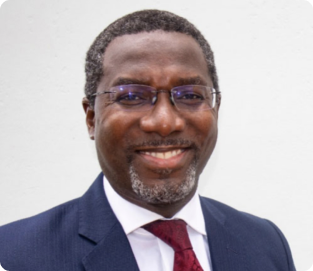
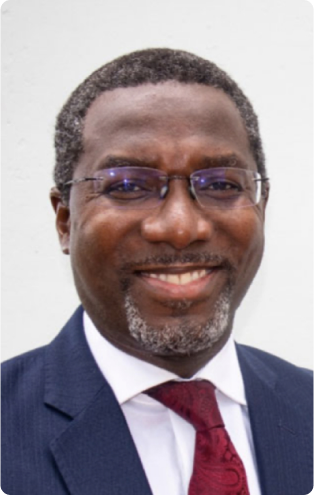
Education Workforce Head of Country Engagement
(Ghana/ UK)
Dr. Sam Awuku is the Head of Country Engagement for the Education Workforce Initiative and previously the Project Lead of the Education Commission’s Innovative Pedagogies Project (IPP). He brings over 30 years of experience in education and development across sub-Saharan Africa, the UK, and Poland. Advising Ghana’s Ministry of Education since 2015 through T-TEL, he provides strategic guidance on curriculum, policy, school improvement, technology use for teaching and learning, school leadership, and partnerships. Previously, as Global Director for the Centre for Development and Public Engagement at AIMS-NEI Foundation, Sam spearheaded the establishment of AIMS centers in Tanzania and Rwanda. He also co-founded TeachAid Consulting Ltd., offering strategic services to organizations like Education Development Trust, VVOB, Chemonics International, RTI International, ImpactEd International and Association for the Development of Education in Africa (ADEA).
Sam was the Board President for the Ghana Society for Education Technology and a government nominee on the Council of the University of Cape Coast and Ghana Communication Technology University. Sam is a Fellow of the College of Teachers, UK and a Member of the Institute of Directors, UK. He holds a teachers’ certificate, BA (Hons) in Social Science, MA in Inclusive Education, MBA, MA in Education Programme, and Ph.D. in Education Technology and Development Policy from the UCL Institute of Education, UK.
Contact Sam: sawuku@edc.org
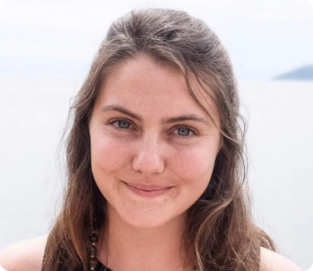
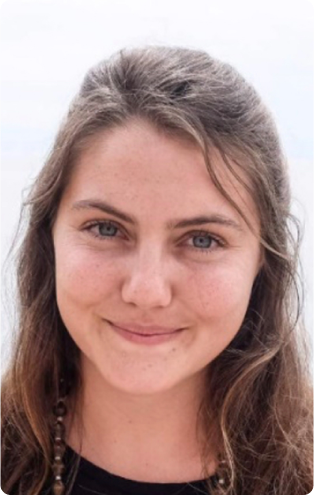
Research Associate
(US)
Emma is an education specialist with over seven years of international development experience in research, policy design, and teaching. Her work focuses mainly on early childhood development, teacher professional development, and girls’ education, and she has field experience in countries across Sub-Saharan Africa. She is a current consultant for LGI, the Center for Global Development, and the World Bank.
Previously, she was a secondary teacher in Rwanda for two years as part of the Peace Corps and a primary teacher for two years in the US and Tanzania. Emma holds a Master’s in International Education Policy from Harvard Graduate School of Education and a Bachelor’s in Education and Cultural Anthropology with a focus on Sub-Saharan Africa from Middlebury College.
Contact Emma: ecameron@edc.org
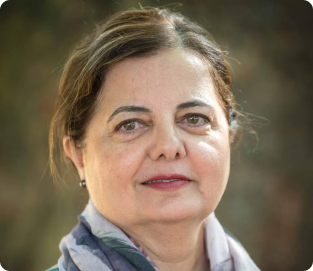
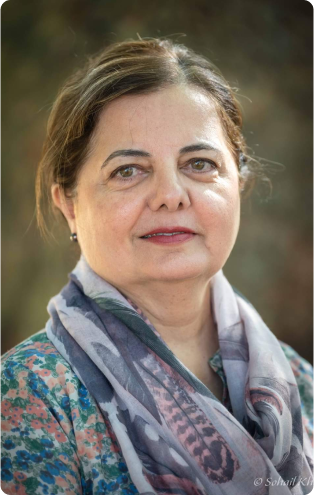
Senior Adviser System Delivery
(Pakistan)
Neelofar is a Senior Adviser for LGI’s systems delivery transformation which follows on from the Commission’s DeliverEd Initiative. Neelofar brings over two decades of impactful experience in education and development, with a proven track record of driving positive change in diverse settings. She has spearheaded numerous successful projects and initiatives, working with organizations such as the Education Commission, Education Development Centre (EDC), UK’s Foreign, Commonwealth and Development Office (FCDO), the Canadian International Development Agency (CIDA), and multiple government, private sector, civil society, and development partners in various education-related contexts.
With expertise in policy analysis, institutional reforms, and strategic relationship-building, Neelofar has played a pivotal role in enacting structural changes across education systems. Her work has focused on improving learning outcomes for all children, with a particular emphasis on marginalized communities, including girls and out-of-school children.
Drawing from her country experiences in Pakistan, Ghana, Sierra Leone, and Jordan, Neelofar is deeply committed to the belief that education can transform lives. Her future aspirations revolve around building resilient education systems, enhancing policy implementation, and ensuring equitable access to quality education for every child.
Contact Neelofar: njavaid@edc.org
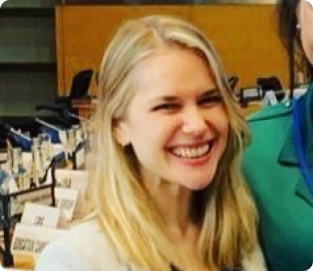
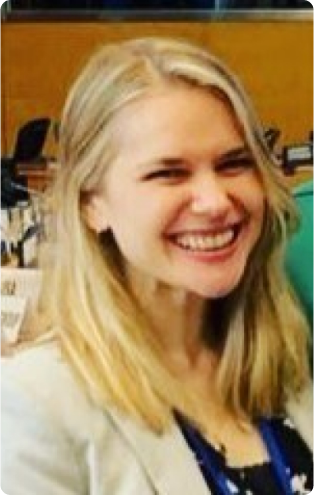
Associate Project Director for School Health and Nutrition
(US)
Katherine Kullman is the Associate Project Director for School Health and Nutrition at the Learning Generation Initiative at EDC and is based in Washington, DC. In this role she manages the work of the Sustainable Financing Initiative (SFI) for School Health and Nutrition, an initiative under the umbrella of the School Meals Coalition that works with governments and donors to help countries identify multi-year financing opportunities for school feeding programs with a particular focus on low- and lower-middle-income countries.
Prior to joining EDC, Katherine worked as a Project Manager for the Education Commission coordinating multiple programs including school health and nutrition work, the International Finance Facility for Education (IFFEd), and the Global Education Forum (GEF). Prior to her work in international development, Katherine worked as an Early Childhood Specialist at Briya Public Charter School in Washington, DC, a two-generation education model serving recent immigrants that embraces a comprehensive approach to care to enact social change. She most recently worked at the Embassy of the United Arab Emirates helping to lead local and international foundation relations.
Katherine served with AmeriCorps in Washington, DC from 2011-2012 and served as an At-Large Board Member for AmeriCorps Alums DC for 2023. She holds a Bachelor of Arts in English from Skidmore College and a Master’s Degree in International Relations from the University of Bath.
Contact Katherine: kkullman@edc.org
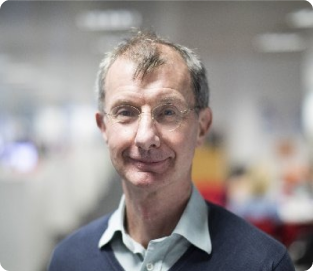
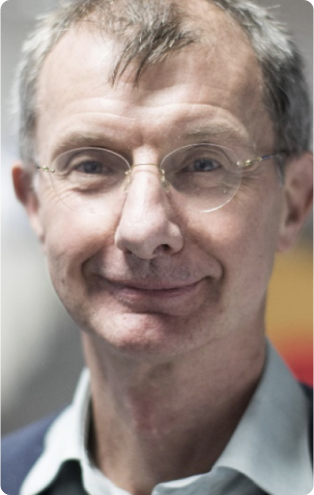
Senior Advisor
(UK)
Kevin leads SFI’s research and analysis work, publishing major reports and influencing global work on investing in school meals. Kevin is currently a visiting Professor of Practice at the London School of Economics. He was CEO of Save the Children UK from 2016 to 2021, having previously led the Overseas Development Institute (ODI). Kevin worked for seven years in the United Nations, first as lead head of UNDP’s Human Development Report Office, where he was lead author of flagship reports on climate change, water and sanitation, and inequality, and then as Director of UNESCO’s Global Education Monitoring Report.
Prior to working at the UN Kevin worked at Oxfam GB, where he was head of research. He has authored a number of books, reports, and articles on development issues, including education, international trade, and public health, and is a regular commentator in the media.
Kevin has held visiting positions at the Washington-based Brookings Institution and the Global Economic Governance Programme at Oxford University. He holds a D.Phil in modern Indian history from Oxford University.
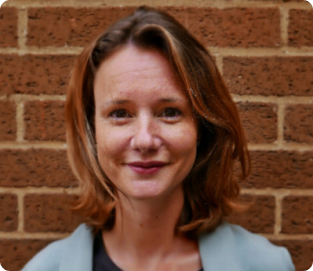

SFI Public Finance Expert
(France)
Helene leads SFI’s country work, engaging with countries to develop sustainable financing strategies for school meals. Hélène Gourichon, a French national, is a Food System Policy Specialist. She has ten years of experience in food and agriculture policy, including five years leading food policy for a local authority in Scotland and five years working at the FAO where she supported African governments with analysis and formulation of food and agriculture policies including analysis of public finance.
Hélène holds a MSc in Urban Economic Development specializing in Food & City at University College London and a MA in Political Science at Sciences Politique Bordeaux, France.
Contact Hélène: hgourichon@edc.org


SFI Country Coordinator
(DRC)
Oxcence Nyalundja Esther is the Country Co-ordinator for the Sustainable Financing Initiative for School Health. She is also an international technical advisor at EDC.
Prior to joining the LGI, Oxcence worked 7 years in managing humanitarian programs for EDC with USAID, MasterCard Foundation and the World Bank in crises environments including liaising with key community stakeholders and government representatives, facilitating youth-led local labor market assessments, designing gender equity and social inclusion activities, strengthening the capacity of schools and local organizations, supporting the process of socio-professional integration, livelihood development, entrepreneurship, strengthening private sector engagement and working in the green economy.
This work concentrated on highly vulnerable populations, including working with adolescent girls and women, refugee and displaced communities and vulnerable host populations in RDC, South Sudan and Senegal.
Oxcence holds a Masters degree in Economics and Management Sciences and a Masters degree in Development Studies.
Contact Oxcence: onyalundja@edc.org


Communications Project Manager
(UAE/ UK)
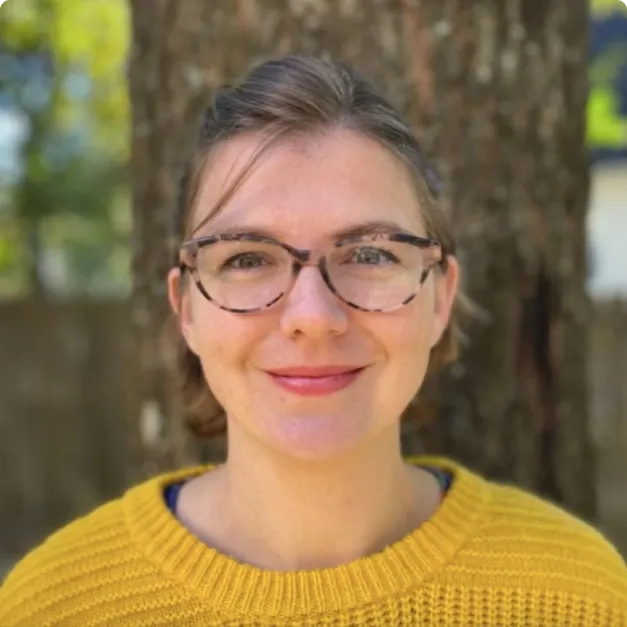
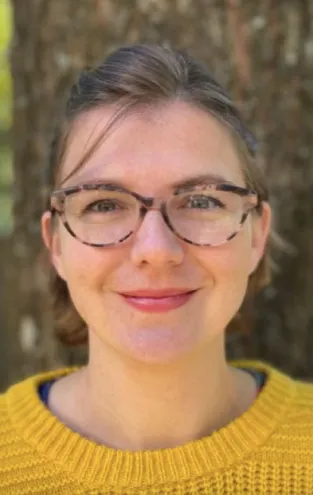
International Project Coordinator
(US)
Carrie Stout is a basic education specialist with over ten years’ experience. She currently lives in Puerto Rico with her husband and two children. She previously worked on EDC’s Leading Through Learning Global Platform, assisting with the Global Reading Network, as well as on USAID Mali Doniya Taabolo and Mali Food For Education. She served in the United States Peace Corps in Zambia working in education, has done a masters in teaching and taught in Haiti and Mali. In her free time she is pursuing a doctorate in Education from the University of Florida and is a professional seamstress and quilter.
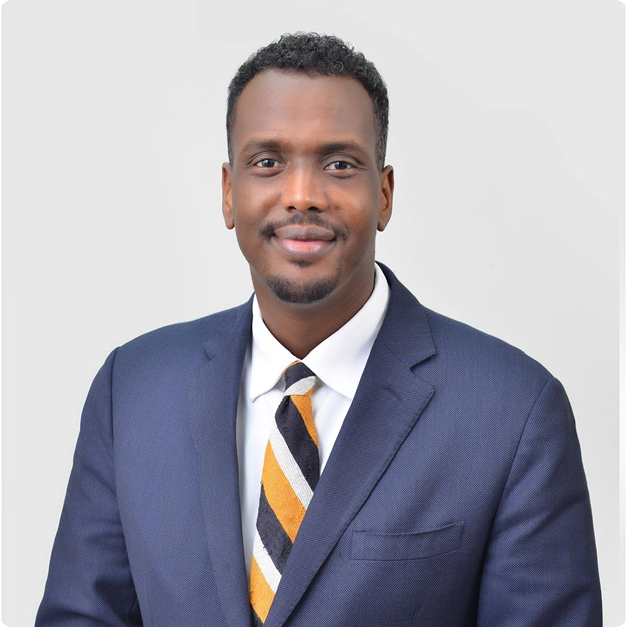

Sustainable Financing Initiative for School Health and Nutrition Lead
(Nairobi)
Mohamed Abdiweli, is a development finance and advocacy specialist with extensive experience driving policy and practice change. Currently, he leads research and advocacy at the Sustainable Financing Initiative for School Health and Nutrition – an initiative of the School Meals Coalition – partnering with governments to advance scalable and sustainable school meals financing. For over five years, he has been an Advocacy Officer at WFP, advancing school meals and health and nutrition agendas through multi-stakeholder efforts across diverse sectors. In this role, he has supported WFP’s School Meals and Social Protection Service, helping to plan and implement global, regional, and multi-country advocacy initiatives—particularly those positioning the issue and the School Meals Coalition within key global and regional moments and catalyzing policy and practice change at the country level. Prior to this, Mohamed was a Debt Specialist, working with the World Bank and serving as the Head of Debt Management at Somalia’s Ministry of Finance, where he supported efforts that contributed to the country securing debt relief.
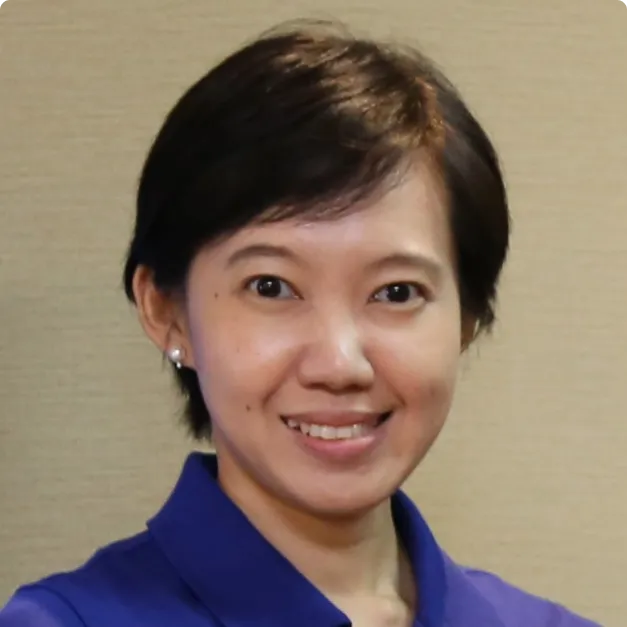
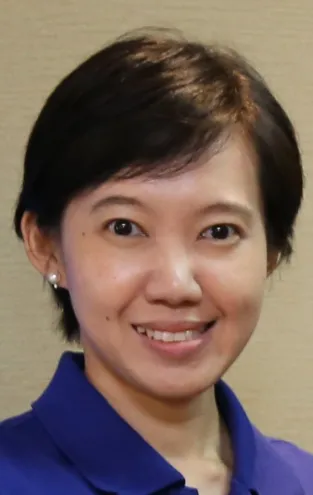
Chief of Party
(Thailand)
Sattiya Langkhapin is an experienced curriculum designer and educator committed to education system reform, innovative workforce development, and inclusive development. As Chief of Party at EDC, Sattiya currently leads Empowerment through Data-Driven Green Entrepreneurship (EDGE), Green Skills Vietnam, and High Touch High Tech for All projects, equipping youth with critical skills for success in an innovation-driven economy.
With expertise in public-private partnerships, STEM education, and digital transformation, Sattiya has led initiatives integrating AI-enhanced learning, data-driven entrepreneurship, and community-based youth skills development. Previously, Sattiya held director roles at Intel Thailand and the Institute for the Promotion of Teaching Science and Technology (IPST) under Thailand’s Ministry of Education.
Sattiya holds a BA in Natural Sciences and an MSci in Biochemistry from the University of Cambridge.

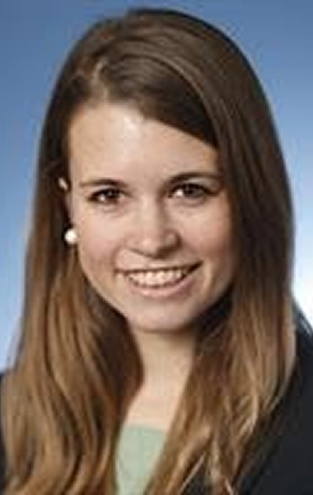
International Project Manager
(US)
Madelyn Swift Cunningham is an international project manager in EDC’s International Development Division and works on LGI’s High Tough High Tech initiative. She comes to EDC from the Education Commission, where she worked on teams translating research into action, increasing financing for education, and bringing together education donors to coordinate aid more effectively.
Previously, Cunningham worked at the Brookings Institution, where she did research into financing for development and oversaw the Brookings Blum Roundtable on Global Poverty. She also worked at the National Association of Independent Schools and the Social Progress Imperative.
Cunningham has a BA in Economics and International Relations from the University of North Carolina at Chapel Hill and an MA in International Trade and Investment Policy from George Washington University.
latest updates
Our recent research, publications and announcements.

Following the launch of LGI’s new strategy earlier this year, we’re excited to share an update on what we’ve been working on for LGI as a whole and within our transformations.
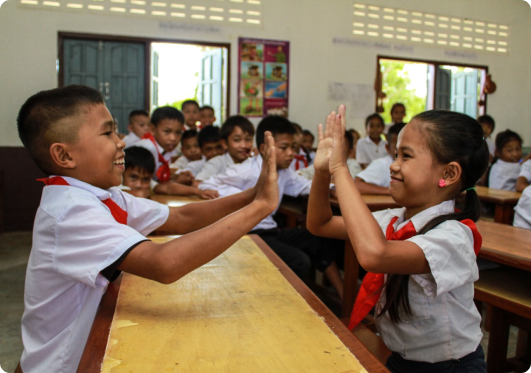
Learning team approaches aim for groups of education professionals that collaborate at every level—classroom, school, district, and central—to ensure learning for all. This note aims to set the agenda for further research on learning team approaches by defining what they are, briefly synthesizing the evidence for them, and providing a few examples of how they have been harnessed to improve foundational learning.

As noted in its executive summary, this report looks at school meals “aid delivery through different windows, both to shed light on financial flows—and to explore discrepancies in the data.” It highlights the need for increased transparency and accountability in aid flows and suggests how the donor community can prioritize school feeding and maximize its impact on children’s lives.
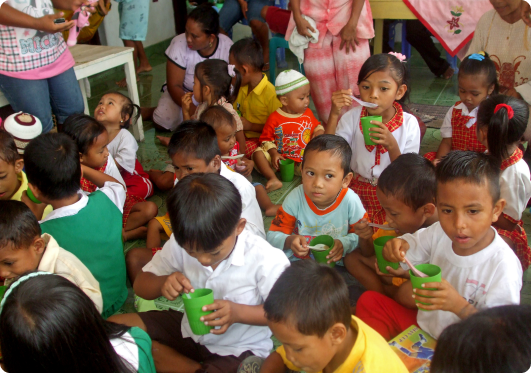
We’re pleased to share our strategy as we begin our journey as the Learning Generation Initiative and look to the future together.
Read Our Latest Blogs
© 2025 The Learning Generation Initiative. All Rights Reserved. Design & Developed Clicktap Digital